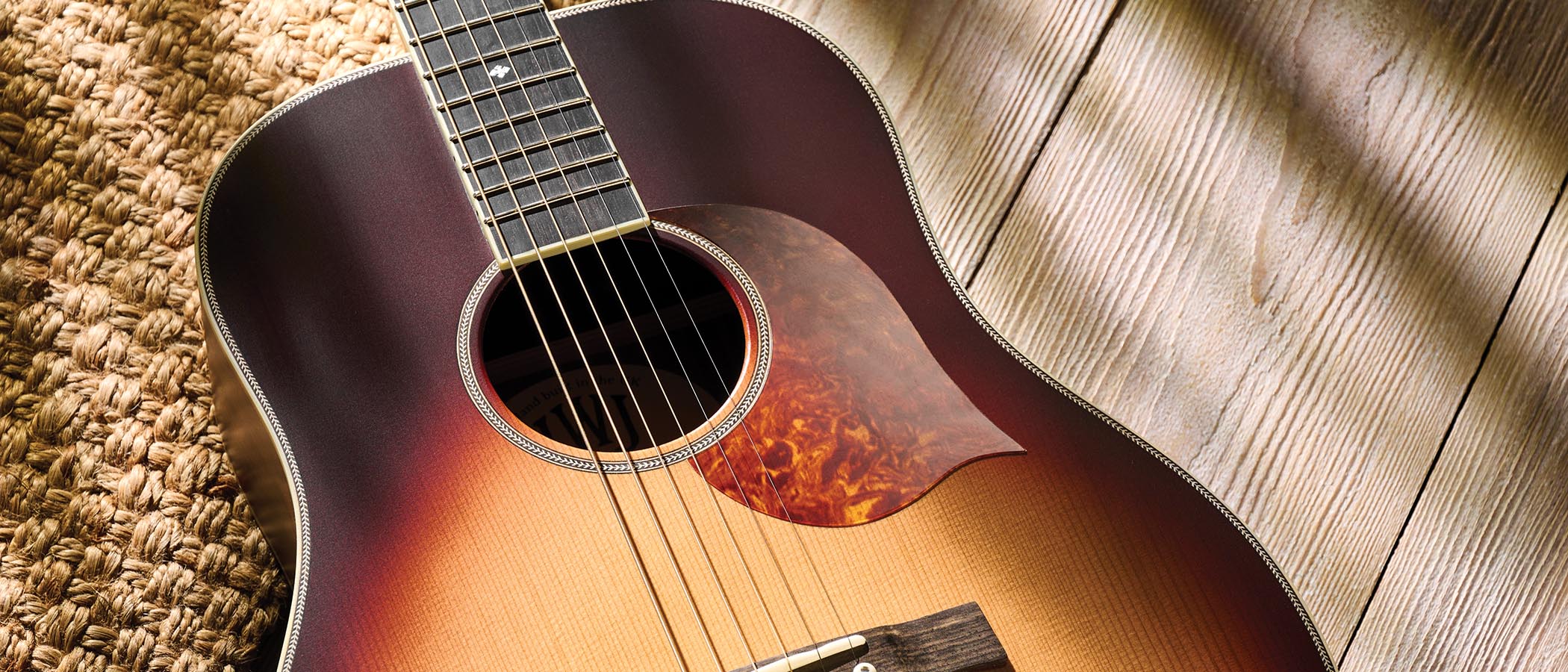Plini: "I’m really happy with everything on this record, which I don’t think has ever happened before"
Ironically, very little of the material on Impulse Voices – the long-awaited second album from scene-leading prog-rocker Plini – came from impulse. Instead a result of long, introspective stretches of time off-tour, the album shows a whole new side of the Sydney-based instrumentalist.

All the latest guitar news, interviews, lessons, reviews, deals and more, direct to your inbox!
You are now subscribed
Your newsletter sign-up was successful
If all went according to plan, now would be around the time Plini finished up his first trek touring the world in support of his second full-length effort, Impulse Voices. Instead, the Sydney-based prog lord is gearing up for his first stint back on stages since a curtailed US run in February 2020. Fingers crossed, that is, granted no more COVID-related hiccups force him to postpone.
The original goal to was to have LP2 hit shelves in the first half of last year. But when the world hit pause and Plini’s future suddenly became anything but certain, he decided not to sweat the deadlines – in fact, most of what ended up making the cut for Impulse Voices came together well after its projected release date. The 28-year-old embraced the mellowness of life at home, spending his days exploring the intricacies of Sydney and its surroundings, catching up on podcasts and expanding his own musical horizons, then chipping away on tracks whenever he felt a strike of inspiration.
As Plini explained in a press release, “It was an extremely fun, rewarding and explorative process – the closest I’ve felt to the free-spiritedness I had when I first started writing music (way before ever releasing it), but informed by everything I’ve learnt and experienced in the last few years of tours and travel. To make an analogy, I feel like I designed a pretty cool house for the listener to inhabit with these songs, but it was made truly special by the masterfully-crafted furnishings and decorations added by Chris [Allison, drums], Simon [Grove, bassist and co-producer] and the rest of the musicians involved [Dave Mackay on piano and synthesisers, John Waugh on saxophone, Amy Turk on electro-acoustic harp, and additional production from Devesh Dayal and Aleksandra Djelmash].”
Before heading off on what’s certain to be his most jam-packed touring cycle yet, Plini sat down with Australian Guitar to walk us through some of the finer details of Impulse Voices.
Were you inspired much creatively by what you were seeing and taking in around Sydney?
I would like to think so! I really have no idea, but my theory when it comes to gathering inspiration is that the more stuff in life that you can do, the more inspiration will come to you when you go to play your instrument. Because I think if I just stayed home and played the guitar all day, I wouldn’t be covering any new ground. I’d very quickly run out of good ideas, in terms of, like, the emotions and feelings that go into a song. But I think if I go and do stuff, see things and meet people, those little day-to-day experiences turn into something for my creative mind to express. That’s just my little theory, though – I’ll see if I still have any ideas in, like, 20 years. But at least it gives me something to do for now!
Did you find as well that being at home and not having the pressures of touring or any hectic schedules to stick by, you were able to experiment with things a little more?
Yeah, definitely! I planned to have the album finished around May or June so I could go on tour in the European summer and then cover the rest of the world throughout the rest of the year. But then it got to June and I think I had sent maybe two demos to my drummer. So the whole thing took about twice the amount of time I originally set aside for myself – which was a huge blessing, because I spent way more time trying different things and tweaking arrangements, to the point where at this stage, I’m really happy with everything on the record. I don’t think that has ever fully happened before, so that was cool.
As a self-taught guitarist as well, do you feel like in the few years between the Sunhead EP and now, you’ve picked up any new techniques?
I think there’s definitely a bunch of styles I hadn’t really done before, in terms of the guitarists I’ve been listening to for the last couple of years, who I sort of borrow things from in my own playing. And there are some tonal things which are a little bit different. It’s kind of hard to say, I guess, because the songs are different – when a certain song is a certain way or sounds like it should have a certain type of guitar playing on it, you don’t really think about what isn’t on it. So I guess with this album, there’s some parts that are more weird, jazz-fusion-y sort of things which I’d never done before. I’m playing my own version of what my favourite fusion players would sound like, if that makes sense. It’s still me, but there’s a bunch of new shit – which may or may not be pleasant for the listener.
All the latest guitar news, interviews, lessons, reviews, deals and more, direct to your inbox!
I get the impression there’s a little more improvisational sort of stuff on this one.
In some of it, mostly just in the early stages. A few of the solos were improvised when I first made the demos, and a couple of [the songs on the album] are virtually demos that I learned to play better – because I’m really not much of an improviser in the way I record; I like things to sound like the most perfect possible version of them, so if in the first take there was a bend that wasn’t quite right or something, I’d re-practise the whole solo until I could play it perfectly. So yeah, the ideas were improvised, but the performances were very tightly curated.
I know you’re still all about your .strandberg* signature guitar – how’s that been holding up for you?
Really well, man! I got a prototype for a neck-thru model about a year ago, and we’ve been developing some signature pickups as well. So I’ve got the next iteration of the signature model ready to go, basically – it isn’t out yet, but it will be soon-ish, I think. I thought I had my dream guitar already, but it turns out it could be improved! So now I have my dream guitar plus.
What was the design process like between yourself and the team at Strandberg? Was there a sort of “anything goes” kind of vibe to the process?
Yeah – within the restraints of what they’re already doing with the guitar, of course. I’m not going to ask them for a headstock or a Les Paul body shape, because I don’t think that would end very well. But in terms of the electronics and the timbers and all that, it’s kind of up to me to figure out what I think I’d like best, and then more or less just ask them for it. And then they usually go, “Yeah, we think this is a terrible idea, how about this?” [Laughs]. It’s a good dynamic! It is mostly based on the production models they make, just with a couple of little personal tweaks, like the lack of a tone knob.
Are you very hands-on in the development phase?
Yeah, we’d talk through every little aspect of the guitar in pretty insane detail. I guess we’re more just friends at this point. As far as business relationships go, I think I could be asking for so much more, but I just don’t really need it – so most of the time I’m talking to them, it’s about whatever else is going on in our lives. And then if I need or want to do something, maybe it comes up and maybe it doesn’t.

Ellie Robinson is an Australian writer, editor and dog enthusiast with a keen ear for pop-rock and a keen tongue for actual Pop Rocks. Her bylines include music rag staples like NME, BLUNT, Mixdown and, of course, Australian Guitar (where she also serves as Editor-at-Large), but also less expected fare like TV Soap and Snowboarding Australia. Her go-to guitar is a Fender Player Tele, which, controversially, she only picked up after she'd joined the team at Australian Guitar. Before then, Ellie was a keyboardist – thankfully, the AG crew helped her see the light…
